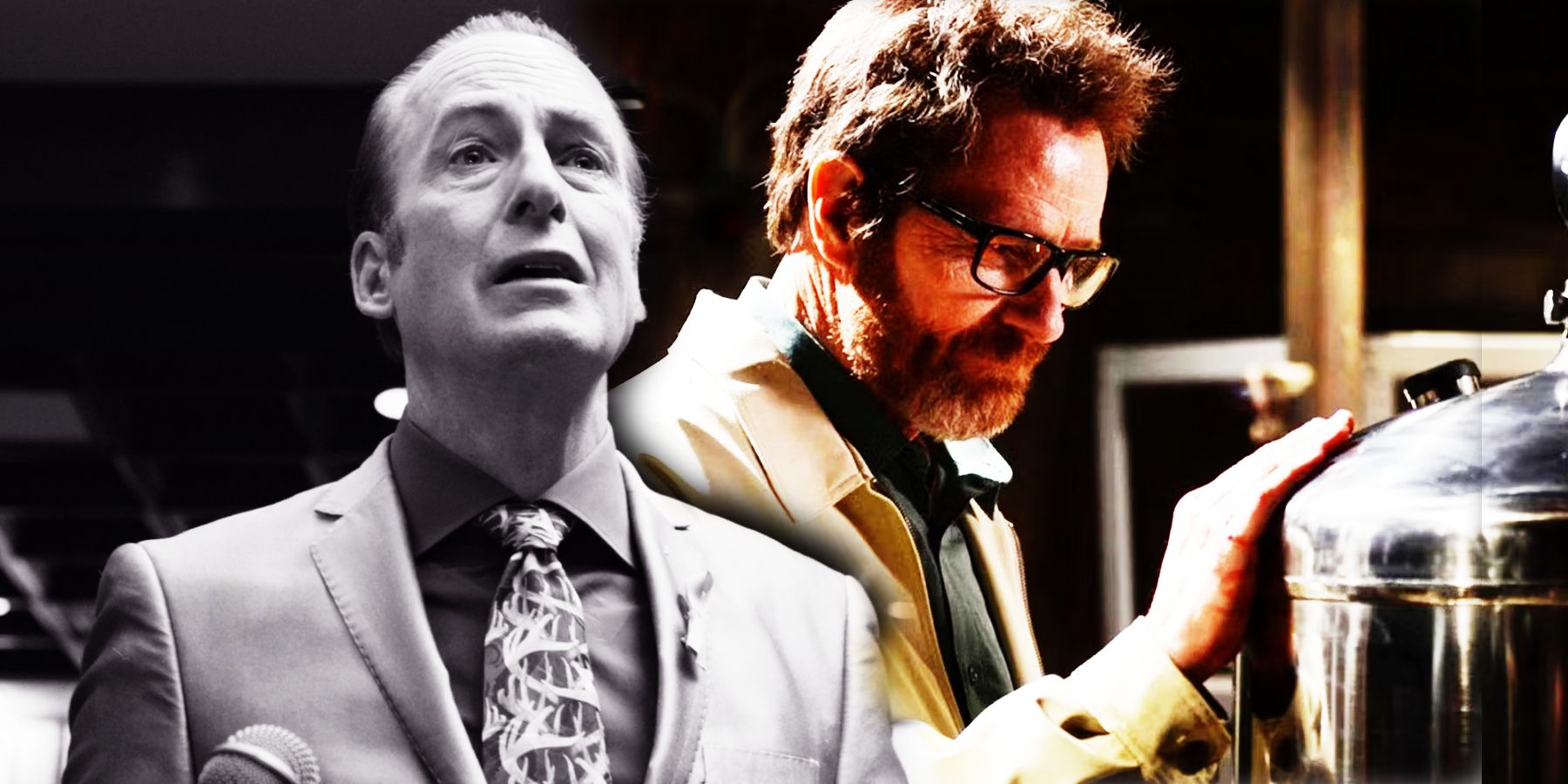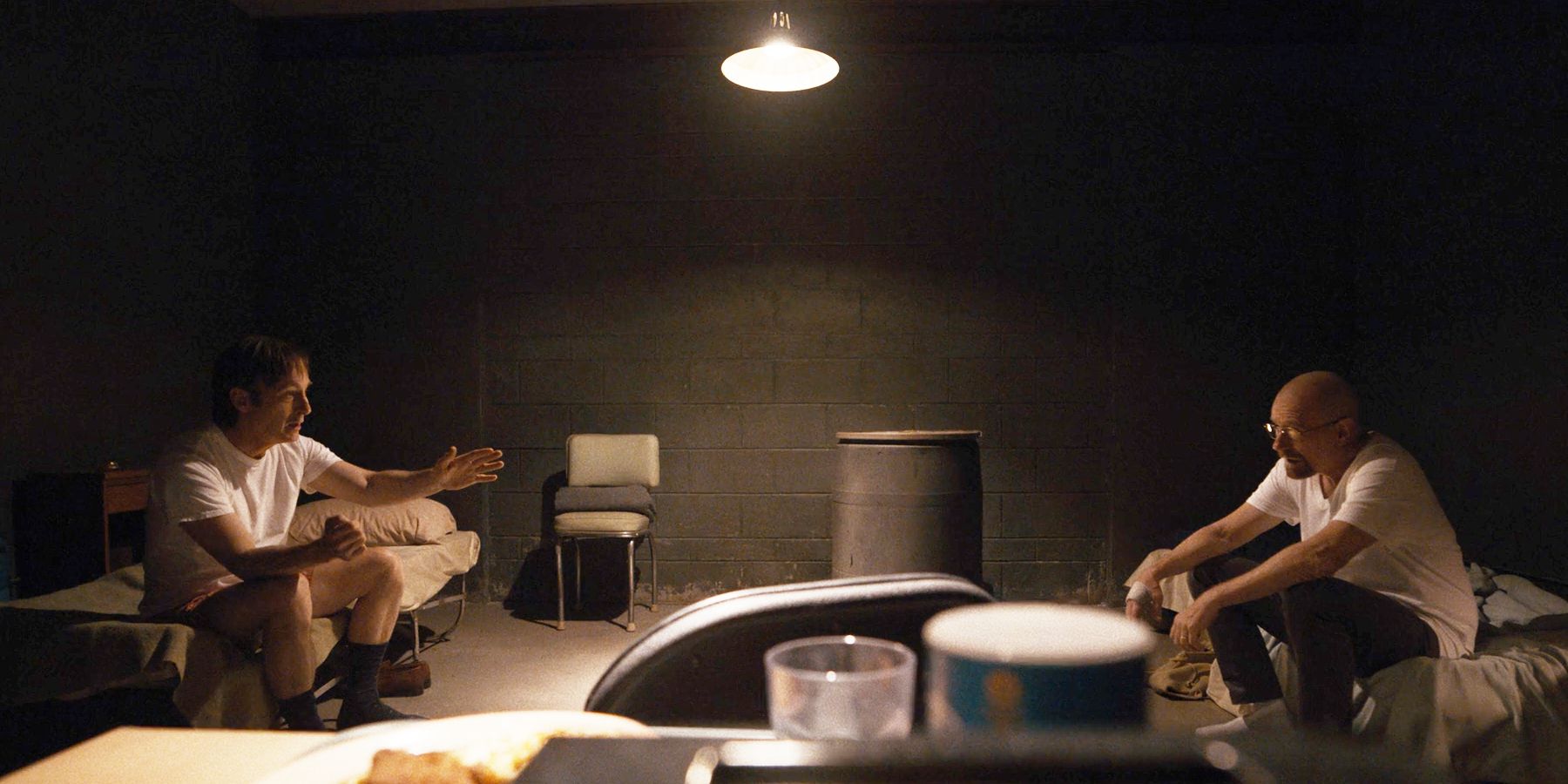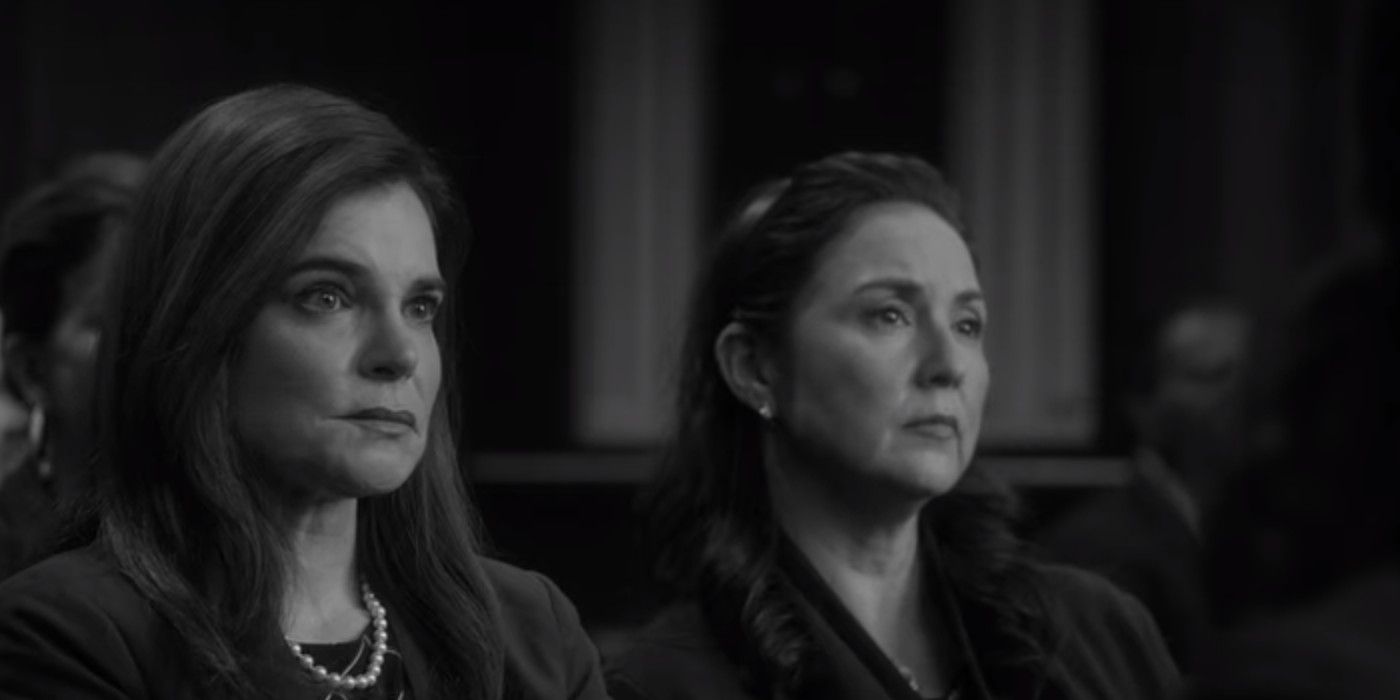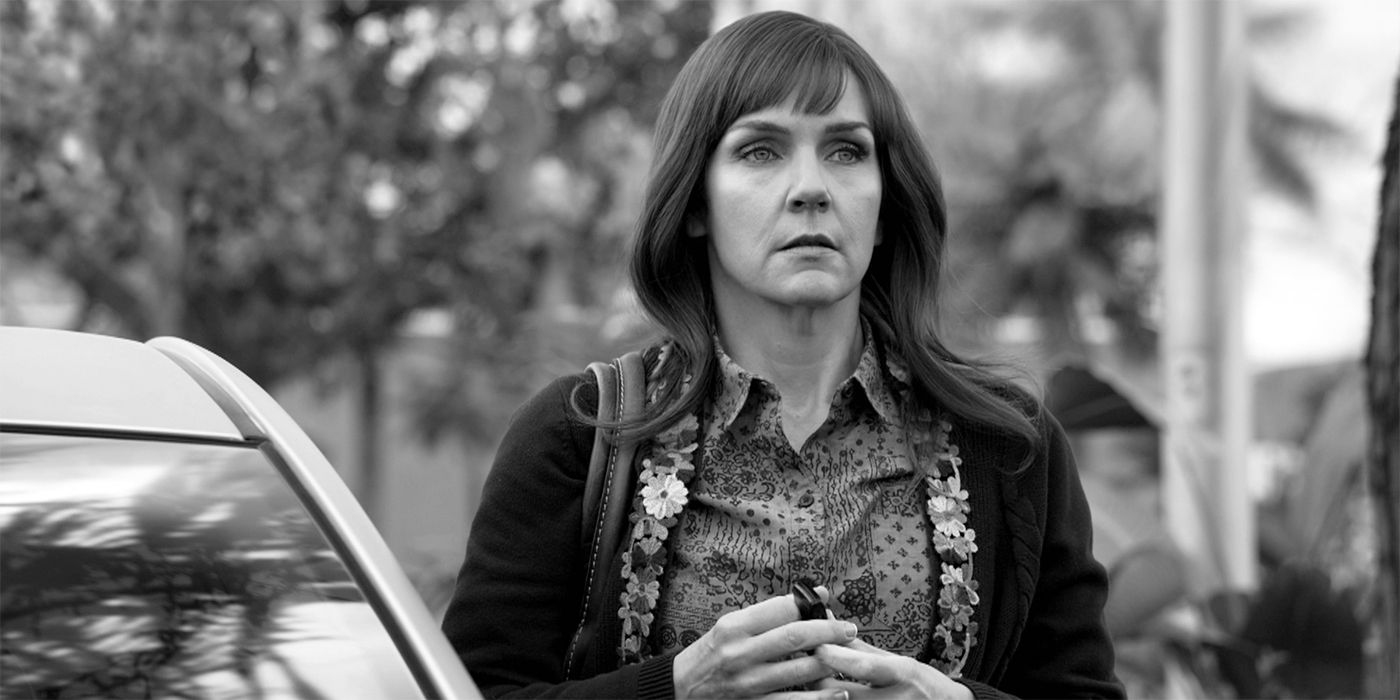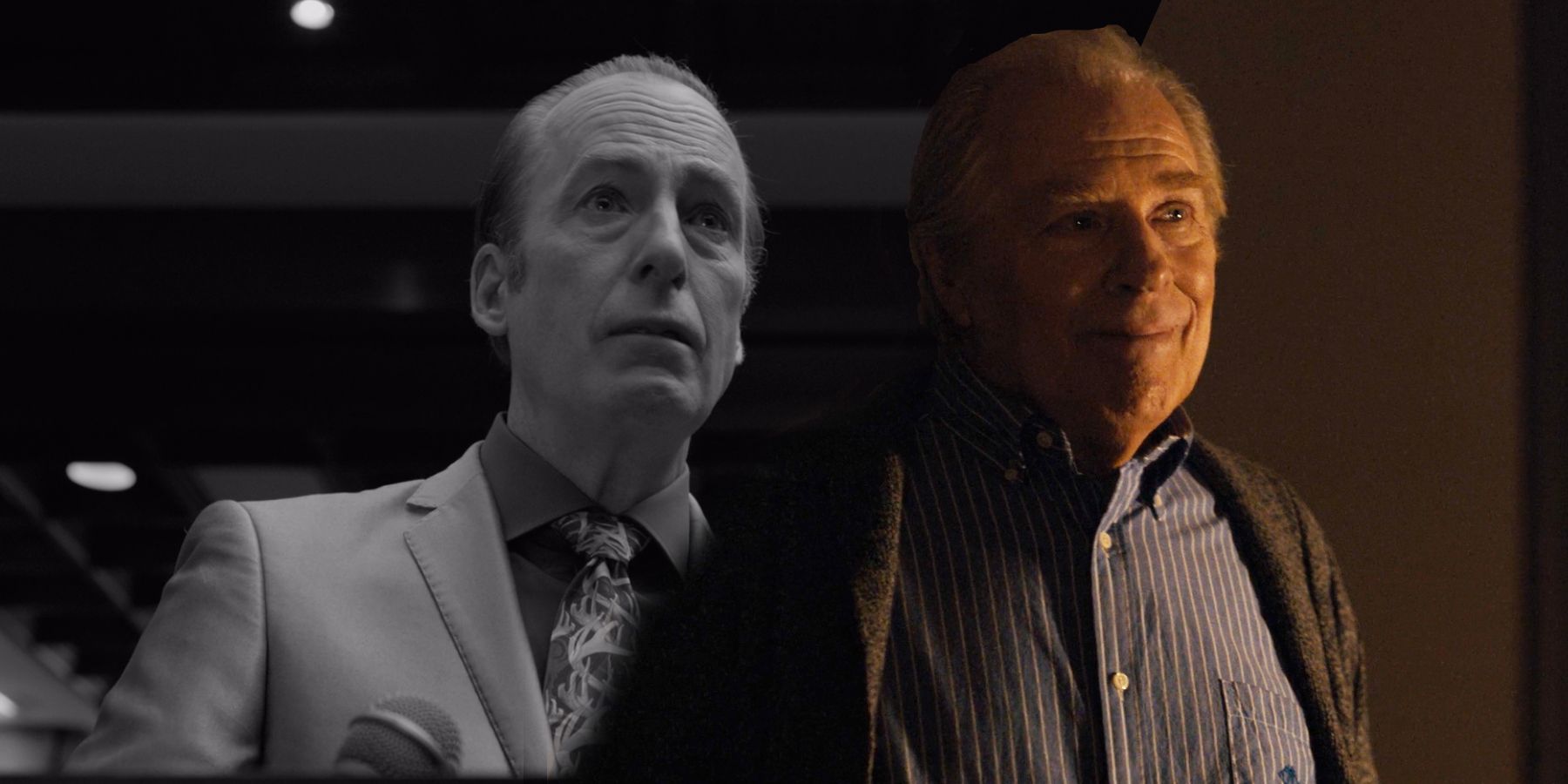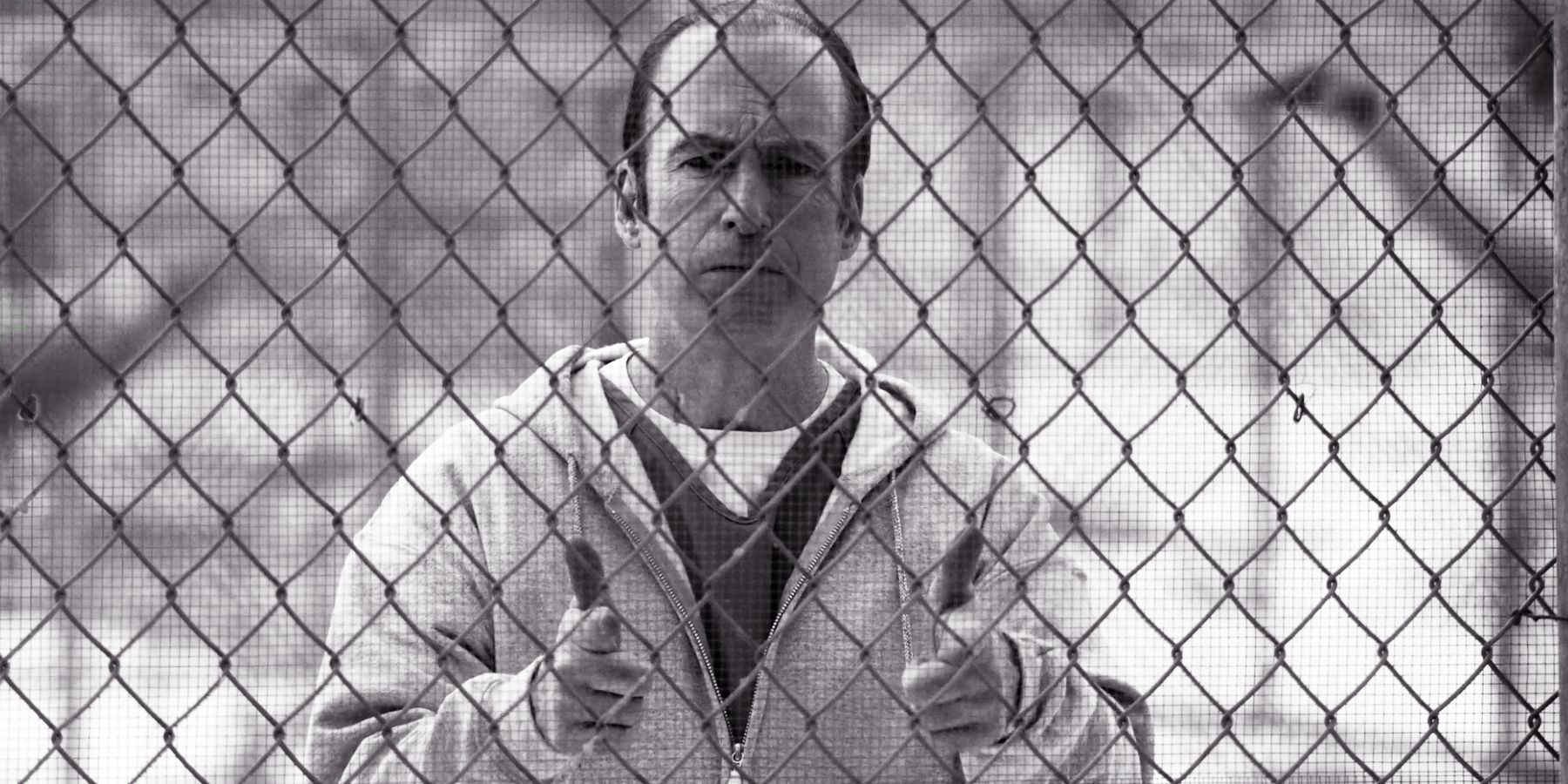Warning: Spoilers ahead for Better Call Saul season 6, episode 13Now that Better Call Saul has concluded, audiences will be comparing its finale with the last episode of Breaking Bad in an attempt to decide which has a better ending. The Breaking Bad prequel has become more of a sequel in its final episodes, updating audiences on the life of Jimmy McGill, a.k.a. Saul Goodman (Bob Odenkirk) after he assumed the new identity of Gene Takovic. Living under the radar in Omaha, "Gene" took an increasing amount of risks, which led to his eventual unmasking as the fugitive lawyer "Saul Goodman."
Better Call Saul season 6, episode 13, "Saul Gone" finds him swiftly caught by law enforcement and finally forced to face the consequences of his actions. While it's possible that "Gene" wanted to be caught, Jimmy/Saul uses his legal knowledge and offers privileged information on Walter White's (Bryan Cranston) empire to make a plea bargain with the government. While it initially appears that this is another example of Saul Goodman's slippery nature, he finally has a change of heart and ends the story of Jimmy McGill/Saul Goodman in an emotionally satisfying way.
Better Call Saul has always been the inverse of Breaking Bad, and "Saul Gone" stays true to this. Where Walter White was an upstanding citizen who became a criminal, James M. McGill has always been a con artist and low-level criminal who aspires to be a better man. Tragically, his love of the grift and his desire for a big payday have regularly sabotaged his good intentions. Better Call Saul season 6's ending sees Jimmy do the right thing and finally step away from his Saul Goodman persona. It's an ending that resolves the story of Better Call Saul in a far more fitting way than Breaking Bad's more action-packed finale.
Better Call Saul Gives Jimmy A Better Ending Than Breaking Bad Gave Walter White
Walter White has a brief moment of self-awareness in the Breaking Bad finale. When he visits Skyler (Anna Gunn) before heading to Jack's compound, Walt admits that everything he's done has been for his own ego. Despite this brief acknowledgment of his hubris, Walt is still largely unrepentant. He only saves Jesse (Aaron Paul) when he realizes that his former partner has continued to make the blue meth against his will. Ultimately, Walt's final attack on Jack's meth operation is about protecting his legacy as Heisenberg more than it's about rescuing Jesse or avenging the death of Hank.
Hank's death also factors into Jimmy McGill's ending via a surprising Breaking Bad cameo from Hank's widow, Marie (Betsy Brandt.) In an incredible scene, Jimmy/Saul sits opposite Marie and gives her an unconvincing sob story about why he worked with Walter White. It's an insult to her and others grieving the loss of those killed by or because of Walter White. It's another example of Jimmy's worse nature, his lies and unwavering desire to end up on top. However, unlike Walter White in Breaking Bad, Jimmy eventually makes a positive change to his character.
When the time comes for him to stand trial and accept his generous plea bargain, Jimmy is no longer willing to benefit from his role in Walter White's empire and confesses to everything. His emotional speech is clearly spurred on by Kim's confession about Howard's death. After goading her into it during their fraught phone call in Better Call Saul season 6, episode 12, Jimmy is inspired by Kim's honesty and integrity, something he's always aspired to. It's the perfect ending to his story, as he finally gets to do the right thing, rejecting the name of Saul Goodman and willingly taking his punishment for his many crimes. It's an immensely moving moment that provides Jimmy a more narratively satisfying character arc than Walter White's remote-controlled revenge.
Better Call Saul’s Ending Does Justice To Walt’s Breaking Bad Victims
The ending of Breaking Bad doesn't fully explore the impact of Hank and Steve's deaths at the hands of Jack and his crew. With Hank dead, Marie was largely sidelined in Breaking Bad's final episodes. In the Breaking Bad finale, it's suggested that she and Skyler, her sister, became estranged after Hank's death, but Marie still calls Skyler to warn her about Walt. Beyond that, Skyler's grieving sister doesn't really factor into the final episode, which is odd given how big a part of the White family she is throughout the series.
Marie appears in the Better Call Saul finale, listening to testimony and imploring the government prosecutors not to make a deal with Jimmy McGill/Saul Goodman. They don't heed her wishes, however, and push on with getting as much out of Jimmy/Saul as possible to reduce his sentence. However, Marie and Steve's wife, Blanca, are present in the court when Jimmy/Saul gives his full confession and takes his 87-year prison sentence. Including the two widows in the Better Call Saul finale gives them the closure and justice that they were denied in the Breaking Bad finale's focus on Walter White's revenge mission.
Better Call Saul’s Ending Wraps Up Its Story More Neatly Than Breaking Bad’s Finale
Marie and Blanca's grief isn't the only loose end in the Breaking Bad finale. Multiple characters are given ambiguous endings or no ending at all. The most notable is Jesse, who escapes the compound before the authorities arrive. The image of Jesse driving into the night and banging on the roof of the car is one of freedom, but he's had a terrible ordeal at the hands of Jack and his crew and has lost everything. Jesse's story was later picked up and resolved in El Camino: A Breaking Bad Movie, which finally saw him escape to Alaska. However, characters like Skyler and Walter Jr. don't get much resolution in Breaking Bad's finale beyond a plea bargain and a trust fund.
Better Call Saul spends three episodes exploring Kim's Better Call Saul fate, explaining why she doesn't feature in Breaking Bad. Her return to Jimmy's life as he faces justice shows how much they both still love each other, and it's this love that gives him the strength to confess his crimes. Unlike Skyler, Kim isn't defined by her relationship with Jimmy, or her complicity in his criminal actions. She has a compelling character arc in her own right, and by the end of Better Call Saul she has managed to do what she always wanted to do: work in legal aid, helping the less fortunate. Even if it's as a volunteer receptionist rather than a lawyer.
Even Mike Ehrmantraut (Jonathan Banks), who has a proper ending in Breaking Bad, gets a low-key scene that wraps up his story. Following on from the emotional moment between Mike and Nacho's father, a flashback in the Better Call Saul finale reveals Mike's desire to travel back in time and refuse his first bribe. That simple refusal would have saved his son and changed the course of Breaking Bad history. His choice of that moment, rather than the day of his son's death, gives Mike a satisfying emotional arc. He's no longer the angry and vengeful father; he's the loving grandfather audiences meet in Breaking Bad who will do anything to give his granddaughter a better life.
Better Call Saul’s Ending Is Far More Emotional Than Breaking Bad’s Finale
Breaking Bad's finale is a thrilling rollercoaster ride that reflects the tone of the show, but it also has a surprising lack of heart. This was to be expected, given that Breaking Bad was often more of a crime thriller than it was an intimate character study, despite the focus on the creation of Walter White's Heisenberg alias. Better Call Saul is an intimate character study, however, and so its finale is incredibly moving. The most emotional moment of the episode is when, after confessing to everything, including how he wronged Chuck (Michael McKean), Jimmy asks to be referred to as James McGill. He had never felt worthy of the McGill name, partly due to the disapproval of his respected older brother. In the wake of Chuck's death, Jimmy was finally free to explore his worst impulses by becoming Saul Goodman.
Better Call Saul's finale provides the harsh truth that Jimmy chose the Saul Goodman identity to escape from his guilt over Chuck's death. He may not have broken any laws by publicly revealing Chuck's mental health condition, but Jimmy reveals that he sees it as a crime. In finally admitting to his crimes and willingly taking his punishment, Jimmy finally feels able to take the McGill name. It's a moment as heartbreaking as it is uplifting. That Jimmy had to fall so far to finally become worthy of the name is devastating, but by demonstrating he's not beyond help, Jimmy's confession is ultimately an emotionally uplifting moment.
Similarly, Kim and Jimmy's silent looks back and forth in the courtroom speak volumes, emotionally. Kim is the last person left alive to whom Jimmy has to prove himself, and so he devises one last scheme to get her into the room. Ultimately, Better Call Saul gives a happy ending to Kim and Jimmy by proving to Kim that she was right about her ex-husband all along. He is a good man at heart, and despite everything, they still love each other, despite the gulf of decades and prison fences between them. These emotional arcs are dealt with so beautifully that Better Call Saul's final episode lingers longer in the memory than the unrelenting action of the Breaking Bad finale.
Why Better Call Saul’s Ending Beat Breaking Bad’s Finale
The Better Call Saul finale is a testament to how far co-creators Vince Gilligan and Peter Gould have come in the 14 years since Breaking Bad first aired. Better Call Saul was a perfect spinoff, enhancing the mythology of its parent show while standing firmly on its two feet. This is particularly true of the Better Call Saul finale, which closes the door on the Breaking Bad universe in service of satisfactorily ending Jimmy McGill's story. Satisfying stories often end with characters being changed by their experiences. Walter White may have become a criminal mastermind, but the darkness and bitterness that drove him to lead a one-man assault on Jack's compound were always in him. Breaking Bad is a tragedy of hubris that could only have ended one of two ways, with Walter White dead from cancer or from a bullet.
The ending of Better Call Saul also appeared like a foregone conclusion, given that it was a prequel show, but that audience presumption allowed the show to do something more nuanced. Gilligan and Gould proved time and again that they weren't willing to take the obvious route with the prequel. Rather than ending with Jimmy/Saul being dragged to the desert by Walt and Jesse, it revisited that moment much earlier and used it to inform the interrogation and courtroom scenes. Unlike Walter White, Jimmy McGill is capable of change. Even if it ultimately comes too late, he gets to finally be the honorable and honest man he always aspired to be. By breaking away from the established Breaking Bad continuity for its final episodes, Better Call Saul was able to deliver an uplifting and surprising ending for James M. McGill, something that Walter White's ending was unable to achieve.

